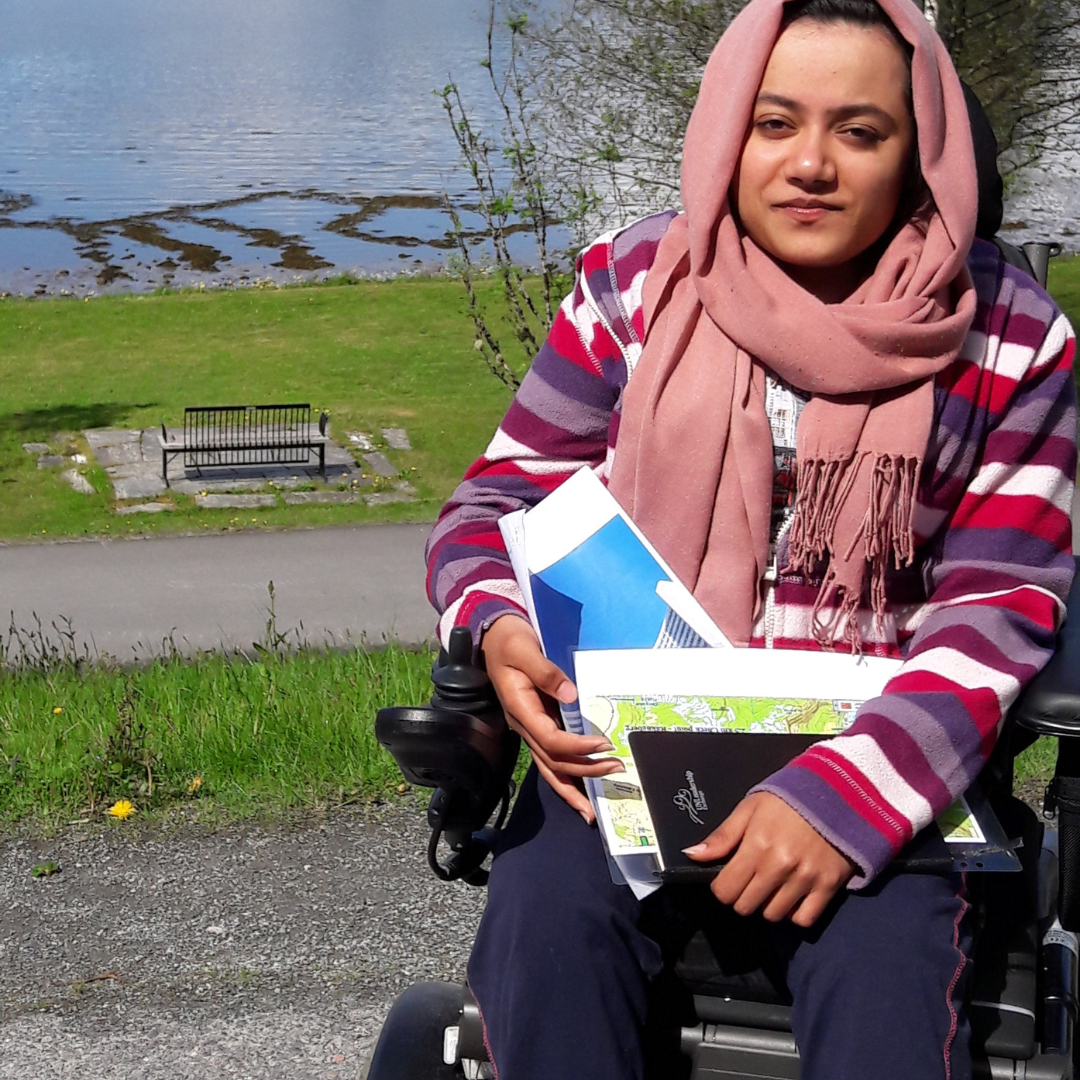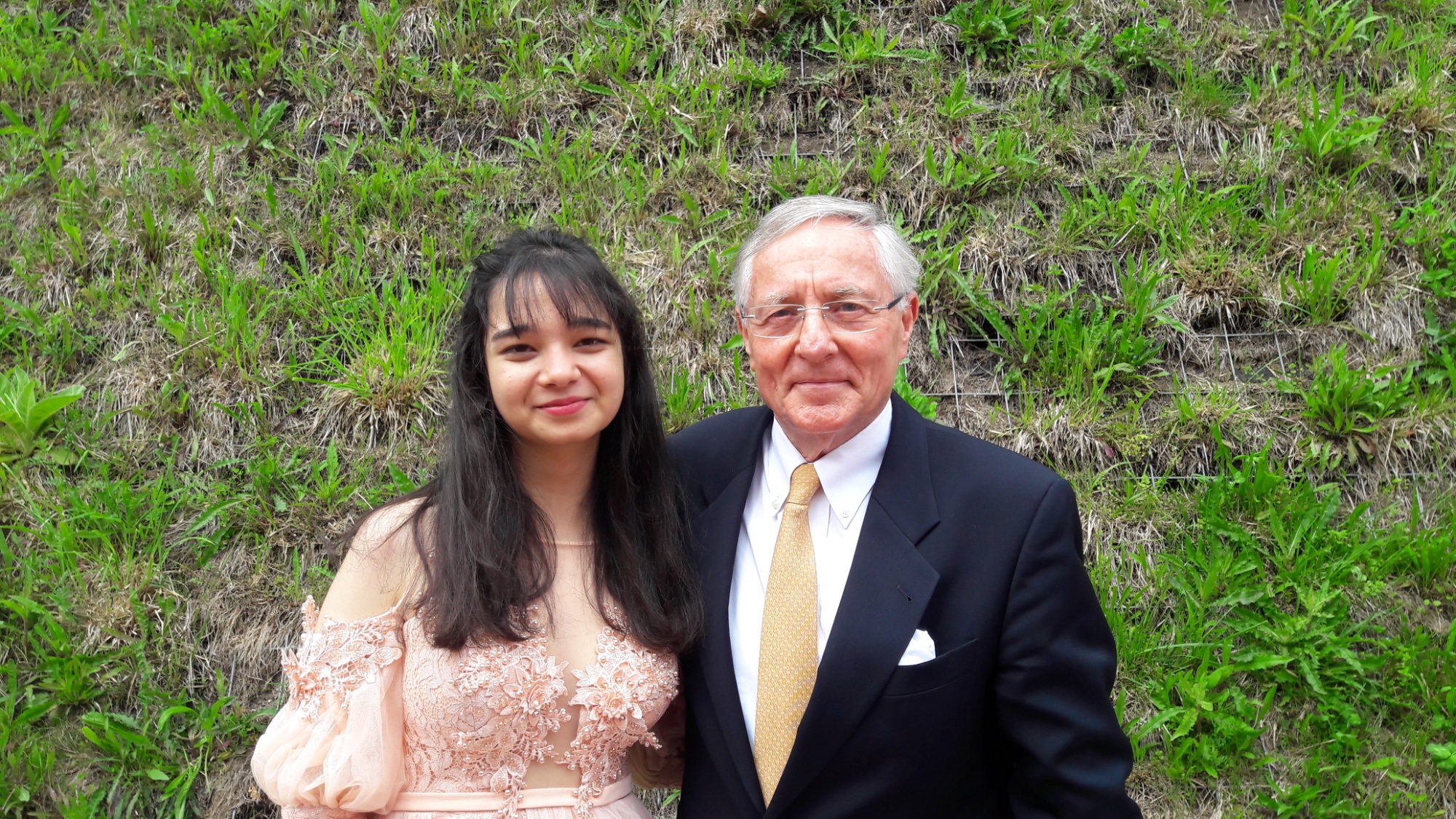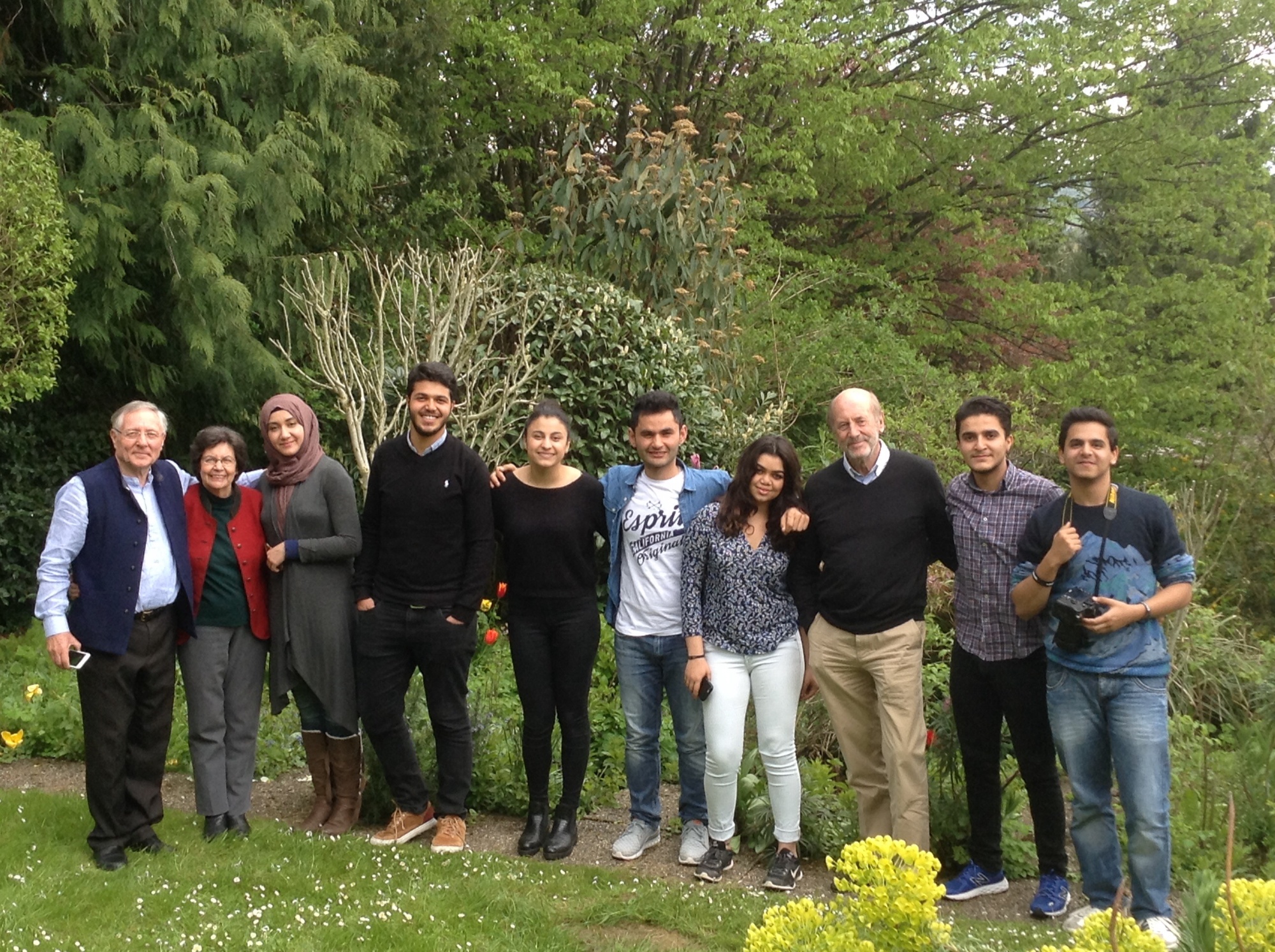Opening Up Opportunties for Young Iraqis

Dr. Hans-Christof von Sponeck (UWC Iraq Focal Point, 2005-2017)
While studying at Salem school in Germany, Dr. Hans-Christof von Sponeck was deeply influenced by Kurt Hahn’s philosophy. This led to the creation of the UWC Iraq Focal Point in 2005, which was designed to find exceptional students from Iraq to study at UWC schools. In UWC’s 60th Anniversary year, we spoke to Dr. von Sponeck and asked him to reflect on the power of a UWC education to change lives.
Q. Please can you tell us about how your association with UWC started.
The UWC spirit was already within me because of studying at Salem school in Germany. Kurt Hahn was my powerful and inspiring history teacher and David Sutcliffe, the future headmaster of the UWC Atlantic, was my housemaster and English teacher. It was David Sutcliffe who many years later in early 2000 asked me to identify Iraqi students for possible scholarships at UWC Adriatic in Duino, Italy. I had just left my UN assignment in Iraq, and this started my direct involvement with the UWC system, leading to board memberships at UWC Adriatic and UWC Mostar.
For political reasons, a regular Iraq national committee was not possible at the time, but I was determined that this shouldn’t prevent young Iraqis from participating in the UWC movement, so I decided to create what I called the ‘Iraq Focal Point’ - a designation which was accepted by the UWC International Office in London and by the individual UWC schools.

Q. You attended Salem boarding school in Germany - the school set up by Kurt Hahn prior to him founding the first UWC school at UWC Atlantic in Wales. Can you tell us about your time there, and the influence Kurt Hahn had on you?
Kurt Hahn fundamentally influenced the direction of my life. Ably supported by Prince Georg Wilhelm of Hanover, Salem’s headmaster at the time, Kurt Hahn may have been physically bent by age, but mentally he was ever-ready to instill in young people his life lessons. He would never cease to remind us, the students, preparing for life, that ‘in each of you is much more than you think’ and that ‘no-one is a passenger, everyone is part of the crew’. With his unforgettable history lessons, especially those that had to do with conflicts and war, he always linked historic facts with what he called the power of the individual to make a difference. To illustrate, he would give us stories to show what personal engagement could do to prevent disasters. In one of these lessons, he identified a young boy who was strolling down the road with his friends when suddenly a horse out of control charged forward wanting to attack them. The boy in turn left the group and with his hands up made the horse understand that it had no choice but to stop, and the horse stopped. This was Hahn’s message of the importance of life principles such as courage, protection of the weak and self-sacrifice, a message then for Salem students like me and for UWC students today.
Q. Where did your studies take you after you left Salem? Did the ethos of the school remain with you after graduating?
Thanks to two travel scholarship awards I had received through Salem and the French Zellidja Foundation, I could test what I had learnt in Salem through two projects, one in Israel, to understand the lives of German Jews who had become Israelis, and one in Hong Kong to work with White Russian refugees awaiting their resettlement in Brazil. These experiences added to my determination to study social sciences and modern history in Germany and the US, followed in 1966 by joining the German Foundation for International Cooperation in Bonn where I worked for two years gaining experience in international development. It was at that time that I became determined to replace my German perspective of cooperation with a multilateral orientation. My hope of joining the United Nations seemed to remain a dream, since in the 1960s Germany had not ever been a member of the UN. However, two years later, in 1968, I was among the few Germans who were offered a UN appointment. A Salem teacher of mine who had become a senior official in the German Ministry of Economic Cooperation hearing of this UN assignment said to me: ‘You will never come back’. And indeed, I never came back to work in Germany, instead remaining for 32 years as a UN civil servant.
Q. And how did this long career with the UN take shape?
My UN life started in Accra (Ghana), followed by assignments at UN headquarters in New York, Islamabad (Pakistan), Ankara (Turkey) Gaborone (Botswana) and for a second posting back to Islamabad, followed by postings in New Delhi (India) and Geneva and a last appointment as the UN Assistant Secretary-General, resident in Baghdad, and responsible for the UN humanitarian programme in Iraq.
Q. You headed up the UWC Iraq Focal Point for seven years. Tell us what that was like; what sort of circumstances were you trying to select students under, and how did you manage with resources/capacity?
The Iraq Focal Point was a one-person undertaking. Beginning in 2005, I cooperated initially with UWC Adriatic but concurrently developed contacts with other UWC schools. Given the unusual status of the Iraq Focal Point, this was not an easy beginning. The number of scholarships that became available annually for Iraqi students were in the first few years no more than six to eight. The challenge was to identify credible contacts, both within Iraq and outside, and to build up a pool of candidates from which to select. Right from the outset, I wanted to make sure that there would be a balance of choice regarding gender and ethnic groups. That was not easy. While I did find Kurdish female candidates, it was initially most difficult to identify female Arab students. It was less difficult to identify male candidates from among Sunni and Shia Arab students and from the three Kurdish areas of Northern Iraq, and other ethnic minorities. As I gained experience, I found ways to select equitably. Then, there was also the challenge of mobilising funding. This was at no time easy, but there was additionally through donations, especially for scholarships, involving candidates with physical handicaps. There were UWC schools ready to accommodate such students. UWC Nordic was exemplary in admitting such students.

Looking back over these 12 years, I can say that a core group of schools existed which year after year would offer scholarships for Iraqi students. There were other schools that would sometimes, but not regularly, welcome Iraqi students, and there was one school, UWC SEA, that regrettably could not make any offers because the Singapore Government would not give visas to Iraqi nationals. I tried to challenge this bias, had the general support of the headmaster but failed to bring about what I thought had to be a fundamental correction in the policy of the Singapore Government.
Another problem I faced had to do with the level of scholastic preparedness of Iraqi candidates to follow a course of study in UWC schools. Some headmasters understood that the impact of sanctions on the quality of education in Iraq required understanding, special help and tutoring. Others did not, complaining about the seemingly poor ability of candidates the Iraq Focal Point had submitted.
Following the 2003 Iraq war and the 2011 end of occupation, conditions in Iraq began to gradually normalise as far as public education in Iraq was concerned. This in turn was a signal for me to end what certainly had been a circumstantial, and yet, also a rewarding, anomaly. I searched for a successor and found an experienced Iraqi academic living in Jordan and arranged with her a handover which was supported by the UWC International Office in London. I have retained links with UWC as a system and contacts with some former and current headmasters as well as a good number of Iraqi UWC graduates.
Q. Can you tell us about any stories - perhaps of students, or selections you made, that have really stuck with you?
During the years of my Iraq Focal Point involvement, some 80 or so Iraqi students were awarded UWC scholarships. A good number obtained their International Baccalaureate Diploma, some only a certificate, very few dropped out for various reasons including their inability to accept the cultural differences between their lives in Iraq and abroad. One story that has really stuck with me is the friendship that ensued between Arab and Kurdish Iraqi students in individual UWC schools. The best story I can remember was the joint travel from UWC Bosch Freiburg in southern Germany to Brussels to view a documentary on Iraq. During the long trip, one of the Kurdish students recited his poems and sang songs from Iraqi Kurdistan vividly enjoyed by his fellow Iraqi Arab students as well as headmaster Laurence Nodder and myself who had accompanied them. Another story I vividly remember, involved a student from Baghdad at UWC Red Cross Nordic who had been admitted with a special scholarship because of his amputated leg. He had arrived in Flekke in a wheelchair and three years later left the school walking freely. He wanted to prove that he could live a normal life and showed this by climbing hills in the school’s vicinity and learning how to ski when the snow started to fall. I also remember a peace conference co-sponsored by UWC Maastricht in which Iraqi students passionately made their case for peace.

Q. UWC was born in a post-war era in the hope that education could be used as a powerful weapon to promote peace. We now have 18 UWC schools worldwide, and over 60,000 alumni - united by the UWC mission. But we still live in a world where war is an everyday reality for some. Where do you think UWC needs to go from here to ensure that we can keep seeking those students who will go on to make positive change in the world?
What I have seen on various UWC campuses is immensely impressive. Each school is a miniature United Nations in which students learn how to think critically and individually but act as a community for the benefit of all. Kurt Hahn would be proud to see that the seeds of his principles of compassion for others, the importance of self-denial, the curiosity to discover the richness and beauty of life and defending the imperative of truth are stored in UWC schools. Asked what else he would have likely said about today’s UWC movement, he would probably have cautioned UWC not to fall prey to elitism and instead do everything possible to practice conscious humility.
